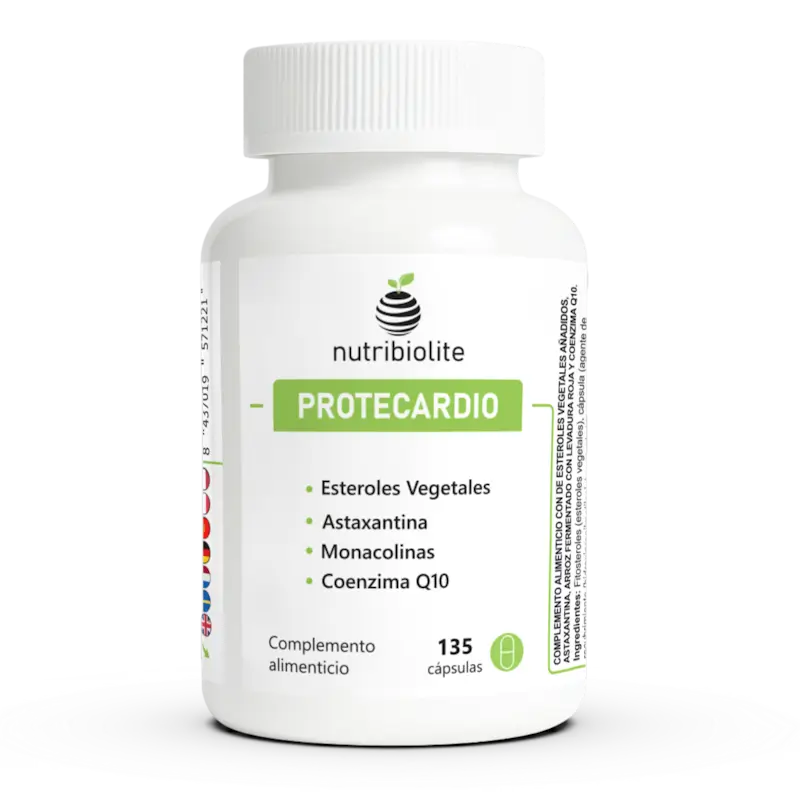A study in Frontiers in nutrition 2025 evaluated in 18 healthy adults how the absorption of coenzyme Q10 changes when formulated in liposomal capsules. It was a randomised, double-blind, placebo-controlled clinical trial comparing an oral dose of 100 mg of standard Q10 versus the same amount in liposomal form.
The results showed that the liposomal formulation achieved higher blood concentrations and kept coenzyme Q10 circulating for longer. For everyday life, this translates into the simple idea that the form in which a nutrient is presented can determine how much your body actually takes advantage of it.
In this group of healthy young adults, liposomal coenzyme Q10 achieved a peak concentration about one-third higher than the standard form and a somewhat higher total exposure during the 24-hour follow-up. There were no relevant safety concerns, which supports the use of this dose in healthy people under appropriate supervision.
These findings are of particular interest to those wishing to support cellular energy processes and protection against oxidative stress, as part of a healthy lifestyle. They also open the door to designing supplements that make better use of every milligram ingested.
Study shows liposomal formulation improves coenzyme Q10 absorption
The researchers recruited 18 healthy people aged 18 to 45, with no relevant diseases or medication that altered fat metabolism. Each participant took three options at different visits, placebo, 100 mg of standard coenzyme Q10 or 100 mg of coenzyme Q10 in liposomal capsules, always under controlled conditions.
Repeated blood samples were drawn for 24 hours to measure Q10 concentration. The liposomal formulation achieved an approximately 31 per cent higher peak blood value and a 23 per cent higher total exposure, measured as area under the curve, than the standard form. These differences are considered modest, but relevant when seeking to optimise bioavailability.
In terms of safety, no worrisome changes in vital signs or laboratory parameters such as liver function, renal function or lipid profile were observed. Adverse effects were mild and similar between groups, suggesting good short-term tolerability of both forms of Q10 in healthy adults.
Coenzyme Q10 is involved in energy production and cellular antioxidant defence.
Coenzyme Q10 is a vitamin-like molecule found in almost every cell in the body. It is especially concentrated in energy-consuming tissues such as the heart, muscle, liver and kidneys. Its central function is to act as an electron carrier within the mitochondria, the structures where ATP, the main cellular energy currency, is produced.
In addition to its role in cellular respiration, Q10 functions as a fat-soluble antioxidant. It protects cell membranes and lipoproteins from oxidation, a process that damages structures and contributes to cellular ageing. It has therefore been studied in areas such as cardiovascular health, physical performance and healthy ageing, always as a physiological support and not as a medical treatment.
The problem is that coenzyme Q10 is very poorly soluble in water and has a relatively large molecular size. In practice, this means that it is difficult for the gut to absorb, especially when taken in crystalline or powdered forms. Hence the interest in technologies that improve its solubility and its passage through the intestinal mucosa.
Liposomal formulations facilitate the passage of fatty nutrients through the gut
A liposome is a small sphere formed by a double layer of phospholipids, similar to a cell membrane. In the study, coenzyme Q10 was encapsulated in a matrix based on sunflower lecithin, with vegetable gums stabilising the structure. This envelope protects the compound from the digestive environment and favours its contact with the intestinal surface.
The absorption of Q10 behaves in a similar way to that of fats and fat-soluble vitamins. It needs to be mixed with lipids, incorporated into micelles and then into chylomicrons, which are particles that travel through the lymph into the bloodstream. When a well-designed liposomal formulation is used, some of this pre-work is already done, which can result in more efficient entry into the body, even without high-fat meals.
In practical terms, better bioavailability means that, for the same dose ingested, more molecules reach the blood and tissues. This does not mean guaranteed clinical effects, but it does mean a stronger physiological basis for coenzyme Q10 to exert its usual functions in energy and antioxidant defence.
Daily habits that support cellular energy and oxidative balance
The study focuses on how coenzyme Q10 is administered, but the basis remains lifestyle. Cellular energy production and the balance between oxidation and antioxidants depend on repeated daily habits.
In nutrition, it helps to prioritise vegetables, fruits, legumes, nuts and fish, which provide natural antioxidants and healthy fats. Cooking with olive oil, reducing ultra-processed foods and limiting added sugars reduces oxidative load and metabolic stress.
Regular movement is also key. Moderate and consistent exercise stimulates the mitochondria and improves their efficiency, always adapted to the individual’s physical condition. Adequate night’s rest and stress management, such as conscious breathing or active breaks, complete a physiological environment that is more favourable for nutrients such as coenzyme Q10 to play their role.
How Nutribiolite’s Protecardio aligns with the studied cardiovascular physiology
The coenzyme Q10 clinical trial underscores an important idea – when you enhance the absorption of a key nutrient, you enhance its ability to participate in existing physiological pathways. In the cardiovascular field, these processes include energy production in the heart muscle and protection against oxidative damage to lipids and membranes.
Nutribiolite’s Protecardio is part of this same logic of physiological support for the cardiovascular system through nutrition and careful formulation. It is designed to accompany the natural mechanisms that the body uses to maintain the balance of blood lipids and the well-being of the vessels, always as a complement to a balanced diet and the lifestyle habits recommended by health professionals.

Nutribiolite food supplement designed to support lipid profile and cardiovascular health as part of a healthy lifestyle.
In adults who already take care of their diet, weight control and physical activity, a supplement focused on cardiovascular physiology may be appropriate as an additional support. It should always be discussed with a healthcare professional, especially if you are taking medication or have a history of cardiovascular disease.
Final summary of the study and role of habits
The trial in healthy adults shows that a liposomal formulation of coenzyme Q10 moderately improves its absorption and blood exposure compared to a standard form. This development adds to the evidence that the way a nutrient is presented influences its actual impact on the body.
However, the basis remains lifestyle, balanced diet, regular exercise, adequate rest and medical monitoring where appropriate. Supplements, including those that incorporate coenzyme Q10 or target cardiovascular health, make sense as a support to these pillars, not as a substitute.
This content is for informational purposes only and is not a substitute for the advice of a healthcare professional.
Frequently asked questions
What does the study on liposomal versus standard form of coenzyme Q10 provide?
The trial shows that a single 100 mg dose of liposomal Q10 reaches higher blood concentrations and is maintained longer than the standard form. This indicates better bioavailability, which may be relevant when seeking to optimise the utilisation of this nutrient.
In which situations it may be of interest to pay attention to coenzyme Q10
Coenzyme Q10 is involved in cellular energy production and antioxidant defence, so it is often of interest to people concerned about cardiovascular health, daily vitality or healthy ageing. It should always be considered as part of an overall lifestyle strategy and with professional advice.
It means better absorption of coenzyme Q10 will have guaranteed clinical effects.
Not automatically. Better absorption is a first step that increases the availability of the nutrient in the blood, but the clinical effects depend on many factors, such as dose, duration, health status and other habits. More studies in specific populations are therefore needed.
How this study relates to cardiovascular health
Coenzyme Q10 is concentrated in tissues with high energy demand, such as the heart, and also acts as a fat-soluble antioxidant. Adequate concentrations may support mitochondrial function and protection against oxidative stress, processes relevant to cardiovascular physiology, although the study was conducted in healthy adults.
What role can Protecardio play in a heart care routine?
Protecardio is intended as a supplement to support lipid profile and cardiovascular health through nutrition. It can make sense for adults who already follow recommendations on diet, exercise and risk factor control, and seek additional support under the guidance of a health professional.
















